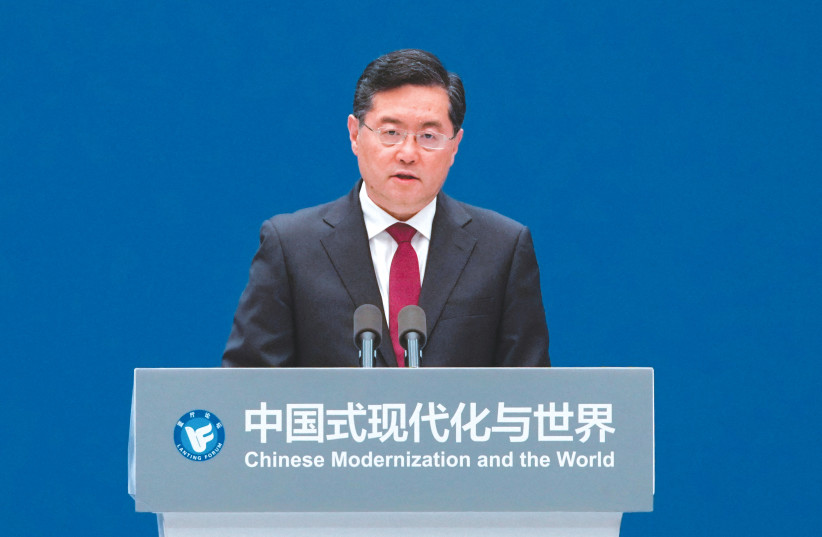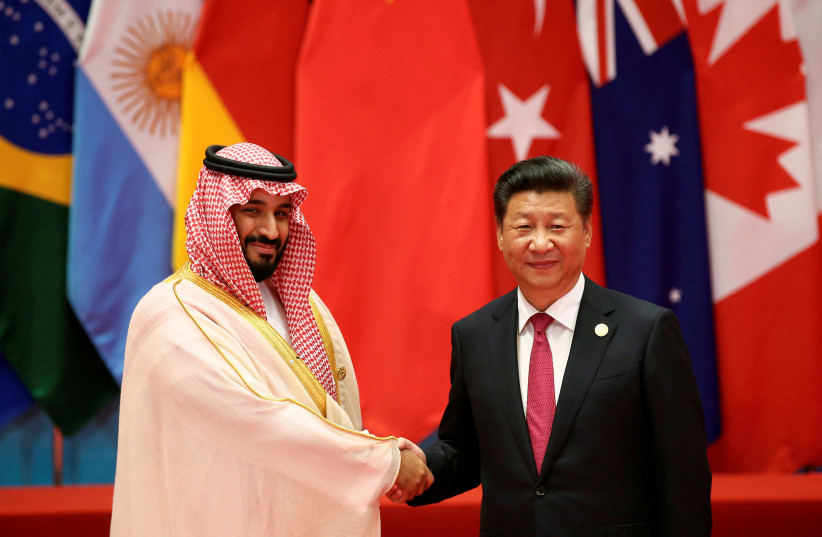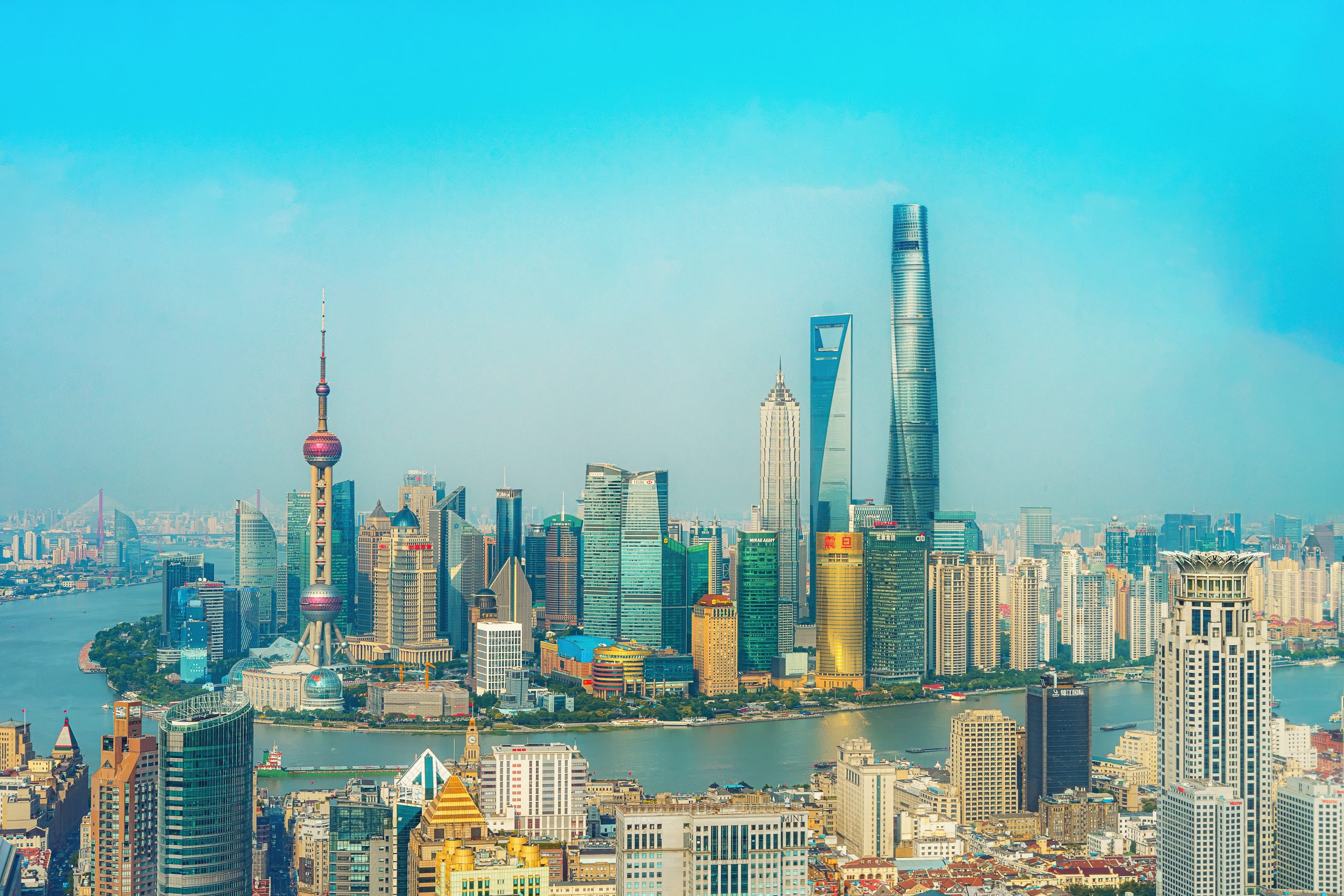Just last month, China successfully brokered a Saudi-Iranian rapprochement and indicated that it wishes to play peacemaker between Russia and Ukraine.

CHINESE FOREIGN MINISTER Qin Gang attends a conference in Shanghai, last week. He has told his Israeli and Palestinian counterparts that Beijing is ready to help facilitate peace talks. (photo credit: ALY SONG/REUTERS)
China’s foreign minister told his Israeli and Palestinian counterparts last week that Beijing is ready to help facilitate peace talks. The separate phone calls between Foreign Minister Qin Gang and Israeli and Palestinian senior diplomats fall amid recent moves by Beijing to position itself as a regional mediator.
Just last month, China successfully brokered a Saudi-Iranian rapprochement and indicated that it wishes to play peacemaker between Russia and Ukraine. These developments did not happen in a vacuum: Since Xi Jinping rose to power in 2012, China has stepped up its global conflict mediation efforts. Several interests are driving this trend.
On the material front, securing its economic interests, protecting its citizens abroad and ensuring its national security are critical factors influencing where and to what extent Beijing chooses to involve itself in any given conflict.
Expanding China’s Middle East presence
Over the years, China gradually expanded its presence in the Middle East beyond energy to become the largest trading partner, a significant investor and a provider of infrastructure and technology for most countries. These growing economic interests have been accompanied by an influx of Chinese citizens to the region, with around 200,000 living in the UAE alone. What’s more, China has long feared that radical elements of both Sunni and Shia stripes might spill over into its Western region and spark domestic unrest in Xinjiang.
Amid rising tensions with the US, Chinese leaders have come to view America’s regional security umbrella as a vulnerability and are seeking other ways to protect these interests. Mediation serves as a low-risk, low-cost way of addressing this vulnerability.

What is perhaps less obvious is China’s desire to portray itself as a responsible stakeholder in the international arena commensurate with its newfound great power status serves as a soft power tool that generates substantial normative power, enhancing Beijing’s ability to reshape global governance and advance a multipolar world order.
An alternative to the Western model
For example, China has offered an alternative to the Western liberal peace model at the center of mediation for much of the past half-century: peace through development. Likewise, the inclusion of new Chinese initiatives like the Global Security Initiative (GSI) in the official statements issued following the Saudi-Iranian deal and the recent talks with Israeli and Palestinian foreign ministers serve as another example.
Mediation works in harmony with other efforts to catalyze multipolarity, including the expansion of the Shanghai Cooperation Organization – a multilateral security organization that now includes Iran, Saudi Arabia and several other Middle Eastern countries – as well as the expansion of BRICS (Brazil, Russia, India, China, South Africa) and its proposal to create a global reserve currency to rival the United States dollar.
In advancing multipolarity, Beijing seeks to counter perceived US efforts to contain China by reducing the power of the American-dominated institutions that form the backbone of the postwar system. If successful, China will have more freedom to pursue its national interests in its traditional sphere of influence and in further flung regions like the Middle East.
Originally published in the Jerusalem Post here.

